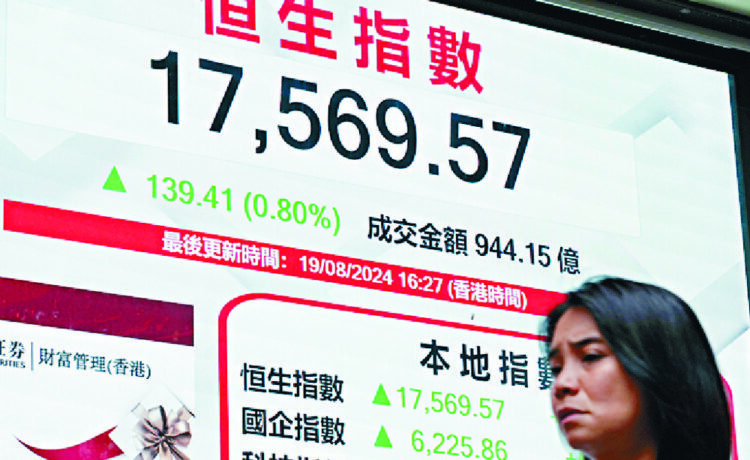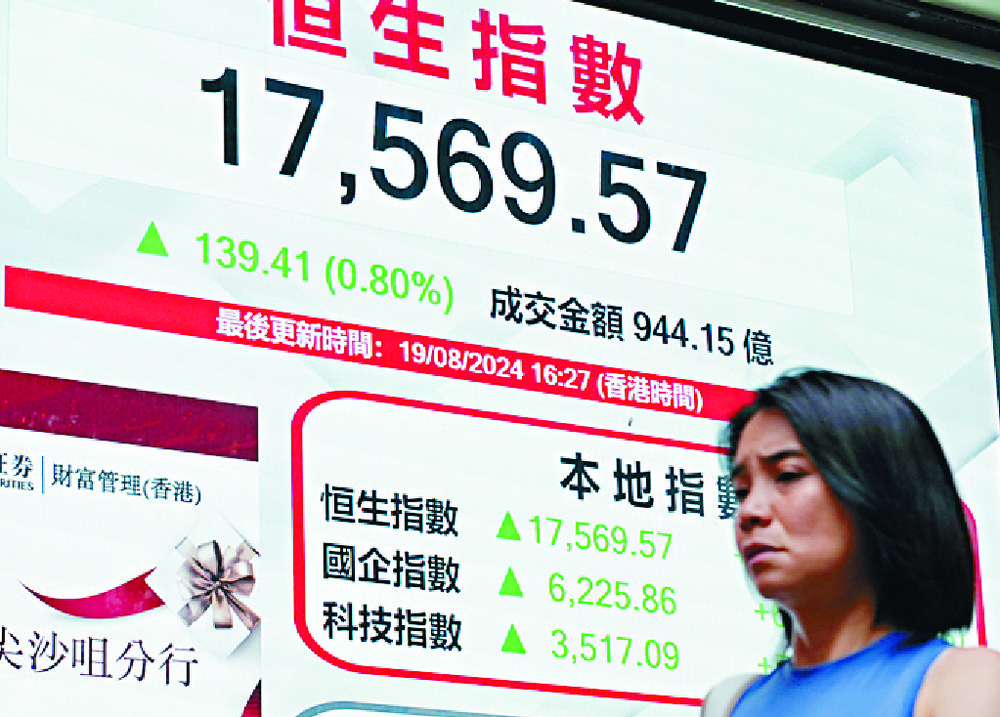Bloomberg and staff reporter
The yuan and other Asian currencies surged to a seven-month high as ebbing US recession concerns, bets on US Federal Reserve rate cuts next month and an improving domestic backdrop lifted sentiment in the region.
The onshore yuan closed 297 basis points higher to 7.1383 against the US dollar yesterday, the highest in 7-1/2 months.
Easing concern about the US recession is a positive for Asia’s export-oriented nations. The Bloomberg Asia Dollar Index gained as much as 0.6 percent yesterday to the highest since January, with the South Korean won and the Malaysian ringgit climbing on upbeat growth prospects. The Thai baht also rose on easing political tensions.
The yen advanced as much as 1.2 percent to 145.87 per US dollar as traders waited to see if Bank of Japan Governor Kazuo Ueda would provide hints on the central bank’s rate-hike path in his appearance in front of the parliament on August 23.
Goldman Sachs Group economists on the weekend lowered the probability of a US recession in the next year to 20 percent from 25 percent, citing last week’s better-than-expected US retail sales and jobless claims data.
They also said they were “more confident” the Fed would cut interest rates by 25 basis points at their September policy meeting.
”It feels like a Goldilocks scenario, where US recession fears fade while growth momentum in the region remains moderate,” said Christopher Wong, a foreign-exchange strategist at Oversea-Chinese Banking Corp.
Regional equities also climbed yesterday, with the benchmark MSCI Asia Pacific Index rising almost 1 percent to head for its highest close in a month.
Hong Kong’s Hang Seng Index rose 139 points, or 0.8 percent, to close at 17,569 points yesterday, with tech stocks seeing a rally. JD.com (9618) rose 3.9 percent while its healthcare unit JD Health (6618) jumped 7.9 percent, the best performer among blue chips.
”The market is envisaging a brighter picture for Asian economies in the coming quarters,” said Tomo Kinoshita, global market strategist at Invesco Asset Management Japan. He expects investors to allocate more funds to Asian equities, especially to those in India, Indonesia and Malaysia.


















